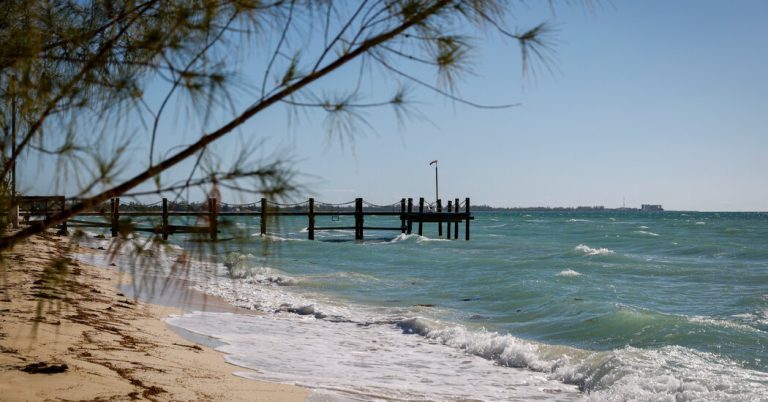Framed by clear turquoise waters and miles of white sand beaches, around seven million travelers visit the Bahamas each year, but a new warning of increased violence in the island nation has raised alarm over the safety of visiting there.
On January 24, the U.S. Embassy in Nassau, the capital of the Bahamas, issued a security alert advising U.S. citizens “to be aware that 18 murders have occurred in Nassau since the beginning of 2024. The murders have occurred at all hours, including of broad daylight on the streets’.
The terrifying alert was unusual for the Bahamas. In addition to security alerts and other alerts issued by its embassies, the State Department issues travel advisories to countries to provide recommended vigilance that visitors should take. The Bahamas is currently under a Level 2 Warning (“Increased Caution”).
Many countries that depend on tourism, such as Costa Rica and the Dominican Republic, currently have level 2 warnings and most travelers are having a safe and enjoyable vacation. The tourism industry in the Bahamas contributes about 70 percent of the country’s gross domestic product, according to the US Department of Commerce, and employs half of the country’s workforce.
Here’s what you need to know about the safety alert and travel to the Bahamas.
What caused the alarm in the Bahamas?
According to the State Department, “revenge gang violence was the main motive in the 2024 killings” and it mainly affects the local population, particularly on the islands of New Providence and Grand Bahama, where the cities of Nassau and Freeport are located. The warnings state that violent crime occurs in both tourist and non-tourist areas.
What does Level 2 mean?
To help Americans traveling to specific countries, the State Department uses a scale of 1 to 4 to indicate the local security situation, starting with the safest, Level 1. Levels can vary from country to country, with some areas to be considered a greater security risk than others.
According to the department’s website, Level 2 means: “Be careful: Be aware of increased safety and security risks.”
Many parts of the world are under advisory level 2, for reasons ranging from street crime to terrorism concerns. The majority of visitors to these countries face no risk – many are not even aware of the increased risk indicated by the levels.
Level 3, by contrast, advises Americans to “reconsider” or “avoid” travel (countries such as Egypt, Nigeria and Pakistan are now at Level 3). Level 4 means “Do not travel” and emphasizes that “during an emergency, the US government may have very limited ability to provide assistance.” Currently, Russia and Ukraine are among the countries with a level 4 rating.
What about the rest of the area?
Currently, Turks and Caicos and Cuba are also in Tier 2 due to crime concerns. Many areas of Mexico are under heightened warnings ranging from Level 2 (Mexico City) to Level 4 (Colima). On January 23, Jamaica was upgraded to Level 3 due to crime and unequal medical care, with the State Department warning that “sexual assaults occur frequently, even at all-inclusive resorts.”
Aren’t there sharks in the Bahamas too?
On January 15, a 10-year-old boy was shark attack while participating in a “shark experience” at a hotel on Paradise Island, according to the Royal Bahamas Police Force. He was reported to be in stable condition. Last month, an American woman died in a shark attack while paddling in the Bahamas, police said.
However, shark attacks are extremely rare in the Bahamas: The Florida Museum of Natural History’s International Shark Attack Archive shows that only 29 unprovoked attacks have occurred in the country since the 16th century.
How can I stay safe on my trip?
The U.S. Embassy in Nassau offers some guidance to stay safe, advising travelers to take “extra care” on the eastern part of New Providence Island – where Nassau is located – especially “when walking or driving at night.” In particular, the Over the Hill neighborhood, south of Shirley Street, should be avoided.
Travelers are also advised to take standard precautions and use common sense: be aware of their surroundings (leaving jewelry and electronics at home), create a personal security plan, don’t answer the door if you don’t know who it is, and . if things go wrong, don’t physically resist any robbery attempt. The US government suggests taking extra care if you’re staying in a short-term rental property without a security presence, and women traveling alone may want to take special precautions.
Before you travel, consider getting travel insurance, including a medical evacuation policy. Most foreign hospitals and doctors do not accept US health insurance, including Medicare and Medicaid.
Another way to stay informed is to sign up for the State Department’s Smart Traveler Registration Program. The free program sends travelers up-to-date information about security situations via email or text message and makes it easy for the US Embassy to contact you in the event of an emergency.
Ultimately, travel comes down to a matter of one’s personal comfort. If you interpret a Level 2 warning as sufficient reason to cancel your trip, there’s no shame in making a choice that makes it easier for you.
Follow New York Times Travel on Instagram and subscribe to the Travel Dispatch weekly newsletter to get expert advice on smarter travel and inspiration for your next holiday. Dreaming of a future getaway or just an armchair trip? Take a look at ours 52 places to go in 2024.




